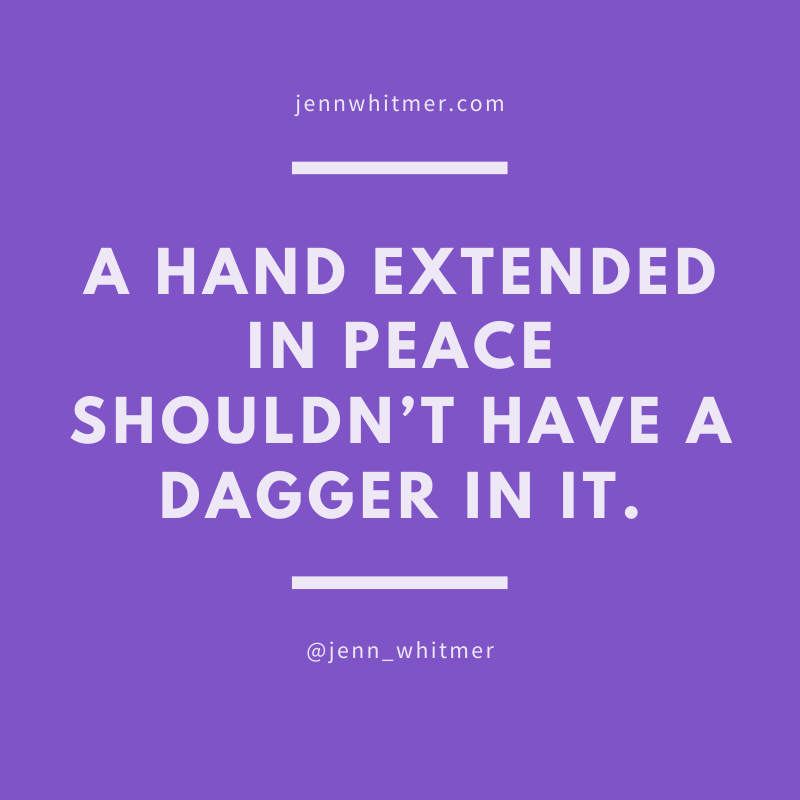I read a stunning — and harmful — non-apology this weekend.
A public figure had a public exchange with another public figure. A devastating lack of respect characterized the entire thread.
Two days later, one person offered a new attack poorly disguised as an apology. Not surprisingly, the Greek chorus of those who witnessed the exchange labeled this attempt as a non-apology.
The basic sentiment of this non-apology:
IF what I said when you were mean to me was mean back, well you were really mean to me. I shoulda probably done something different. My bad.
We’ve all felt the sting when someone offers this type of statement.
But how often have we given this non-apology, causing further damage?
Apologies are relational first aid. We need something different than, “Should have done that differently,” to begin the healing process. Especially for those of us who are leaders or parents, modeling genuine apologies (or giving bad ones) affects the trust we have with our teams and families.
There are ten pieces to include in your apology first aid kit. Do you know all the pieces to stock in your kit?
Download my “Apology First Aid Kit” for your free tip sheet.
How have you felt when you’ve been on the receiving end of a non-apology?

COMMENTs:
0